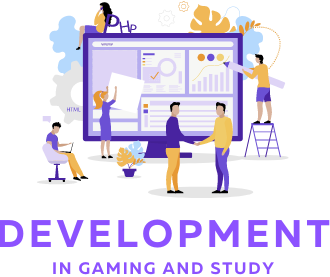In the realm of modern entertainment, few industries have experienced as meteoric a rise as online gaming. From humble beginnings as pixelated adventures to immersive virtual worlds, the evolution of online gaming has transformed it into a global cultural phenomenon, reshaping how we play, socialize, and even perceive reality. Let’s delve into the journey of online gaming, from its nascent stages to its current prominence.
The Genesis: From LAN Parties to Global Connectivity
Online gaming traces its roots back to the 1970s and 1980s, when primitive computer networks allowed gamers to connect locally through LAN (Local Area Network) parties. These gatherings birthed multiplayer experiences like “MUDs” (Multi-User Dungeons), setting the stage for the expansive multiplayer worlds to come.
The true catalyst for online gaming’s explosion came with the widespread adoption of the internet in the 1990s. Games like “Quake” and “Ultima Online” pioneered online multiplayer experiences, enabling players to compete and collaborate across vast distances. As internet infrastructure improved and broadband became commonplace, the era of online gaming blossomed, laying the groundwork for the digital playgrounds of today.
The Golden Age: Emergence of MMORPGs and eSports
The late 1990s and early 2000s witnessed the advent of Massively Multiplayer Online Role-Playing Games (MMORPGs) like “EverQuest” and “World of Warcraft.” These virtual realms captivated millions, offering expansive landscapes to explore, quests to undertake, and communities to join. MMORPGs became more than just games; they became living, breathing worlds where friendships were forged and legends were born.
Simultaneously, competitive gaming, or eSports, began its ascent. Titles like “StarCraft,” “Counter-Strike,” and “League of Legends” transformed gaming into a legitimate spectator sport, drawing crowds to arenas and stadiums worldwide. The rise of streaming platforms like Twitch further fueled this phenomenon, allowing players to broadcast their gameplay to millions in real-time.
The Modern Era: Diversification and Innovation
Today, online gaming is a diverse ecosystem encompassing a multitude of genres and platforms. From battle royales like “Fortnite” to cooperative experiences like “Among Us,” there’s a game for every taste and preference. Mobile gaming has also surged in popularity, offering convenient access to immersive experiences anytime, anywhere.
Moreover, advancements in technology have revolutionized online gaming. Virtual Reality (VR) and Augmented Reality (AR) have pushed the boundaries of immersion, transporting players into fantastical realms or blending digital elements with the real world. Cloud gaming services have democratized access to high-quality titles, removing the need for expensive hardware and allowing players to stream games directly to their devices.
The Future: Towards New Frontiers
As we gaze into the future, the horizon of online gaming appears boundless. Emerging technologies like 5G connectivity, Artificial Intelligence (AI), and blockchain promise to further reshape the landscape, offering slot gacor faster speeds, smarter NPCs, and decentralized economies. Virtual worlds may become indistinguishable from reality, blurring the lines between physical and digital existence.
However, challenges loom on the horizon, including issues of inclusivity, toxicity, and data privacy. As online gaming continues to evolve, it’s imperative that developers and communities work together to create safe, welcoming spaces for players of all backgrounds.
In conclusion, online gaming has transcended its origins to become a cornerstone of contemporary culture. It’s more than just a pastime; it’s a medium for creativity, connection, and exploration. As we embark on this digital journey, let us remember the camaraderie forged in the heat of battle, the friendships forged in virtual taverns, and the countless adventures that await in the vast expanse of cyberspace.
